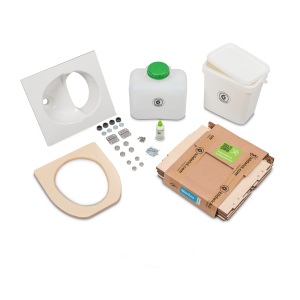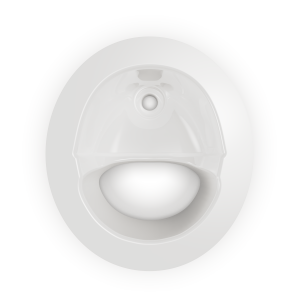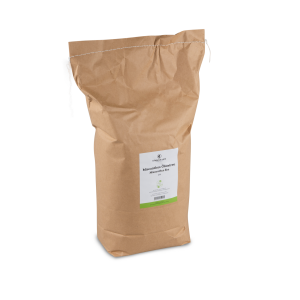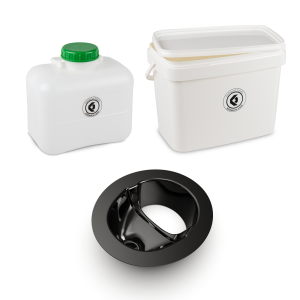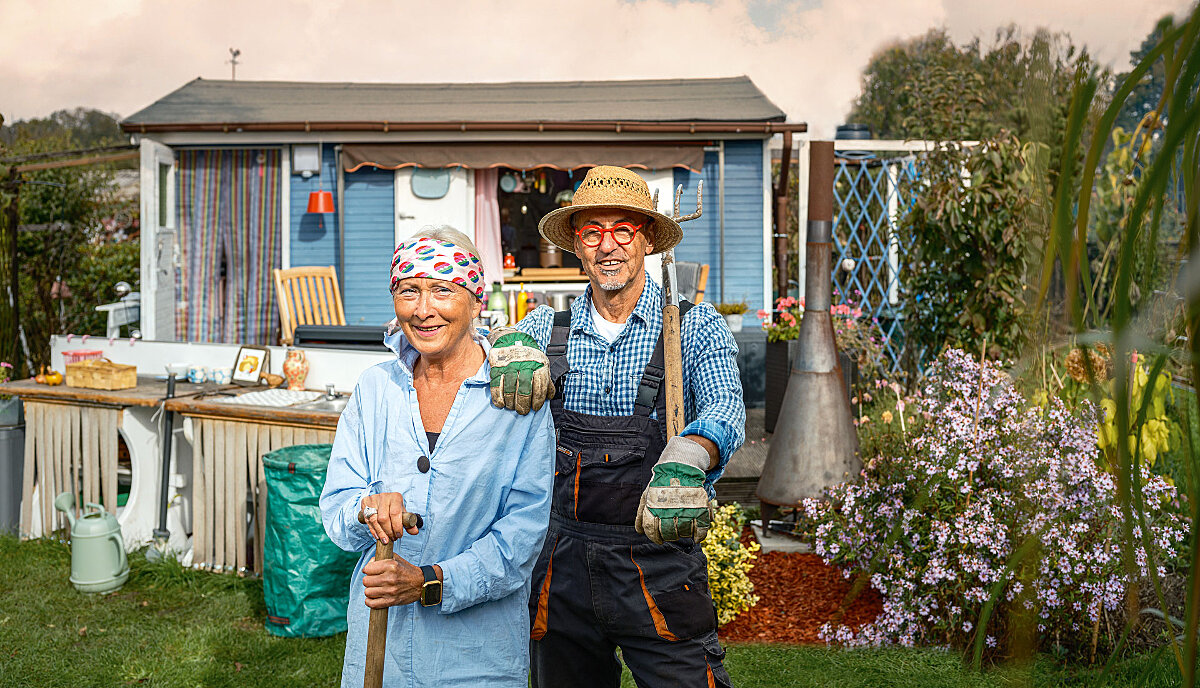
Your garden toilet
(in the green)
Garden toilets from Kildwick
A garden of your own is worth its weight in gold. Many things are possible, but not everything is allowed. There are framework conditions and specifications that every allotment gardener has to adhere to. Especially when it comes to waste water, there are a few important things to consider.
According to the German federal allotment garden law, plots "may not [...] be suitable for permanent habitation" and thus may only be operated without waste water. This means that if urine and faeces are mixed with water in the garden toilet, this mix is classified as waste water, which is prohibited.
Even though the ordinances of the individual (federal) states differ in their details, there are clear prohibitions with regard to the large number of garden toilets - but fortunately recommendations, too.
What is allowed? Garden toilets in comparison.
In addition to the classic flush toilets just mentioned, which produce wastewater, septic tanks for collecting human faeces are also not permitted. This is to protect the soil.
Drainless cesspits are usually tolerated by garden associations – but regular emptying by disposal vehicles must be proven. This can be very expensive, because not everywhere can the vehicles drive right up to the garden door to pump out the waste. Each additional metre of hose then costs extra money.
The use of chemical toilets is handled differently in the garden associations. In most cases, however, it is forbidden. This is because the sanitary liquids used for this purpose to kill germs and accelerate the decomposition of faeces and toilet paper are chemical cocktails and considered as hazardous waste. They harm the environment and consume vast amounts of water during the process of reprocessing in the sewage treatment plant.
How to dispose of urine in the garden?
As an alternative to the public toilets in the gardens, most city and state associations recommend so-called dry or separation toilets to their allotment gardeners. Terms that also come up in this context are: Compost toilet, humus toilet, litter toilet, bio or eco toilet.
Our garden toilets fall into this category. Thanks to the clever dry separation principle, they work without chemicals and water. This means that you are completely independent while still hygienically on the clean side. And the environment is happy too, because you can furthermore use the “solids” in your garden to create humus and use it as fertiliser.
Here you can find out exactly how our waterless separation toilets work and how to use and empty them (the crucial questions!). It's all very easy – let's just say that much.
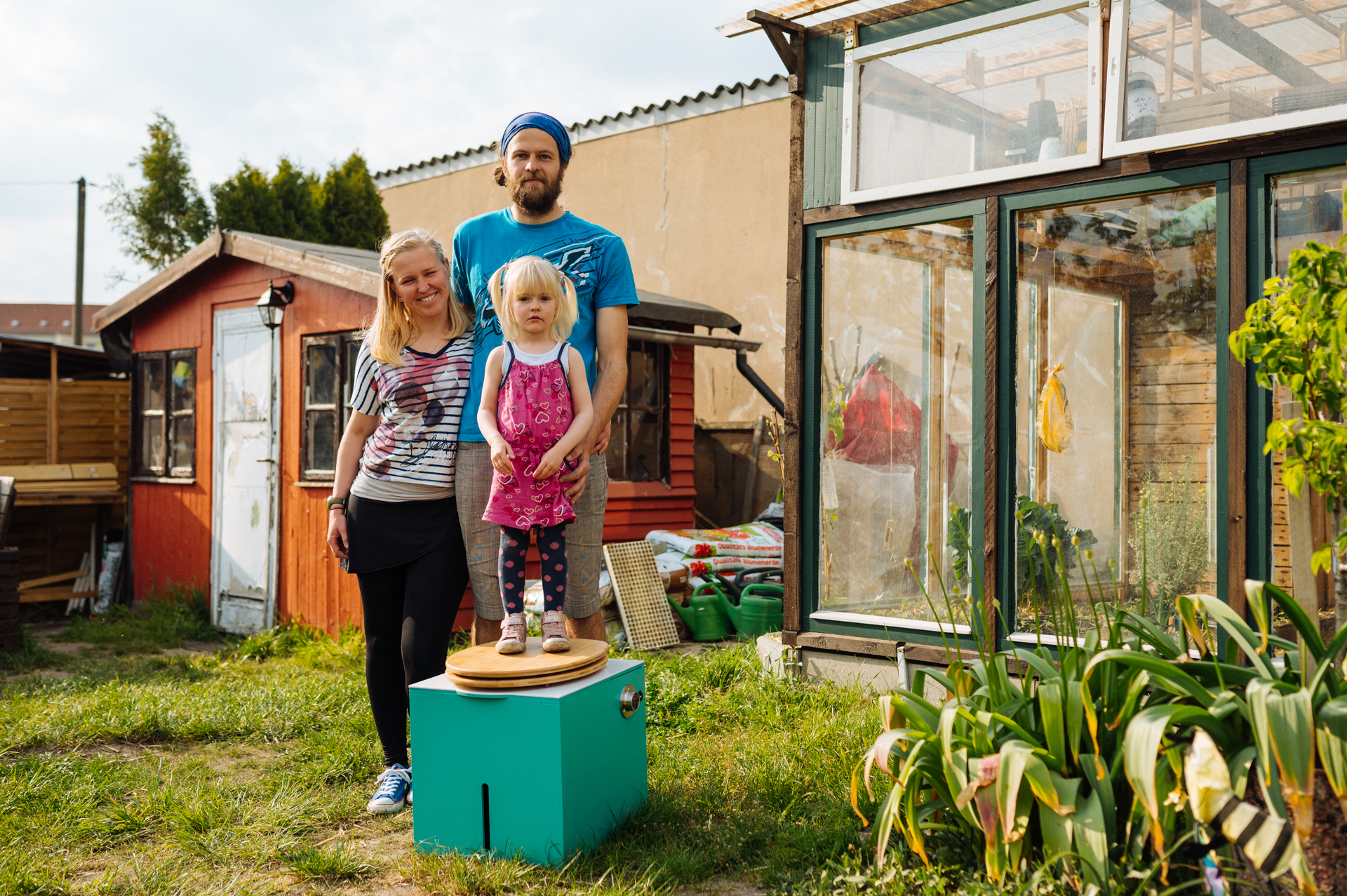
Environmentally friendly pro's of your garden toilet
The perfect alternative to septic tanks, cesspits and the like
The German federal allotment garden law as well as the regulations of the individual federal states and municipalities are clear: Existing solutions such as septic tanks or cesspits, which were more or less tolerated until now, no longer have a future. So that garden owners can continue to enjoy their green oases – which also means toilet comfort – the associations are focusing on sustainable solutions. Their recommendations clearly go in the direction of dry separation toilets. With the environmentally friendly Kildwick garden toilet, you are legally on the safe side.
Our garden toilets need neither water nor chemicals
Kildwick garden toilets do not contain any environmentally harmful substances as used in conventional chemical toilets – an important contribution to environmental protection. In addition, you save a lot of drinking water and, in the case of collection pits, the costs for disposal vehicles. This saves valuable resources – including your wallet.
The materials of our garden toilet are renewable and recyclable
We are already focused on an economical and sustainable production of our composting toilets. We mainly use renewable raw materials such as bamboo, birch plywood, cellulose and miscanthus, as well as recyclable materials – apart from smaller accessories such as nails and glue, which are needed for the necessary stability. The plastics we use for the collection containers and the separating insert shine because of their varietal purity. This means they can be reprocessed in the recyclable material cycle without much loss of quality. Our Kildwick organic waste bags, which you use for the solid waste bin, can be fully composted. Furthermore, we mainly rely on suppliers and partners from our region.
The cleaning of your garden toilet is thought through sustainably
After use, cleaning your garden toilet should of course be done in an environmentally friendly way. Our reliable Kildwick Beetroot Bathroom Cleaner is there to help you. It is just as convincing when it comes to cleanliness as it is when it comes to the environment: without chemicals and exclusively with the power of pure natural ingredients that are biodegradable. Further hygiene support for your garden toilet is provided by our compostable sponge wipes, which are made from 100% renewable raw materials.
The right garden toilet
Our product recommendations for your gardenhouse
You rarely need a quiet place?
Our HappyLoo garden toilet will makes it easy for you
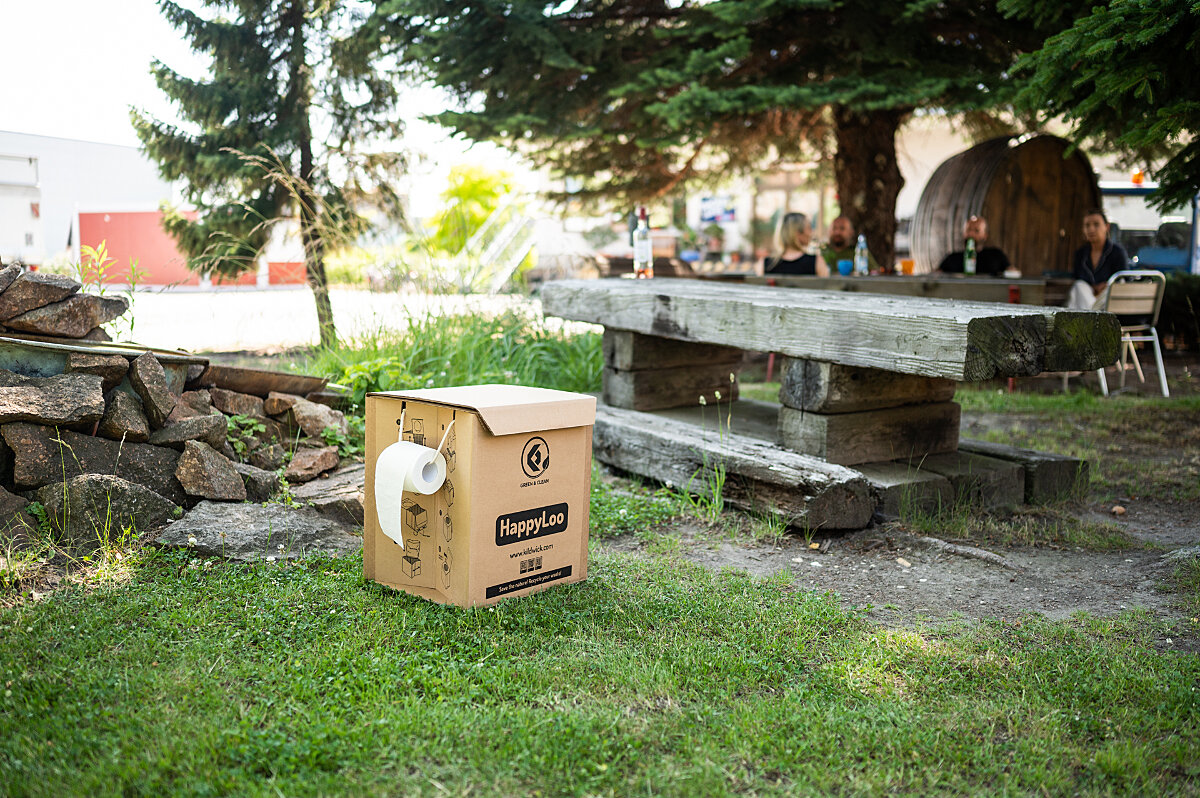
For all those who are looking for a simple alternative because they do not often use a toilet in the garden, our HappyLoo garden toilet is the perfect fit. It is your ideal assistant “emergency” situations: especially for families with small children or in case it takes longer in the garden. The cardboard model is extremely light (1.6 kg) and at the same time extremely stable (can be loaded up to 120 kg), it is also easy to transport and is ready for use immediately. Or you can fold it up again. The HappyLoo also works without chemicals and without water; however, urine and solids are directed into a common container and then disposed of in the residual waste bin.
The straw pellets (1 litre) included in the delivery is enough for about 4 to 5 litres of liquid, the 1 litre of litter is enough for about 20 uses. You also receive three compostable waste bags.
